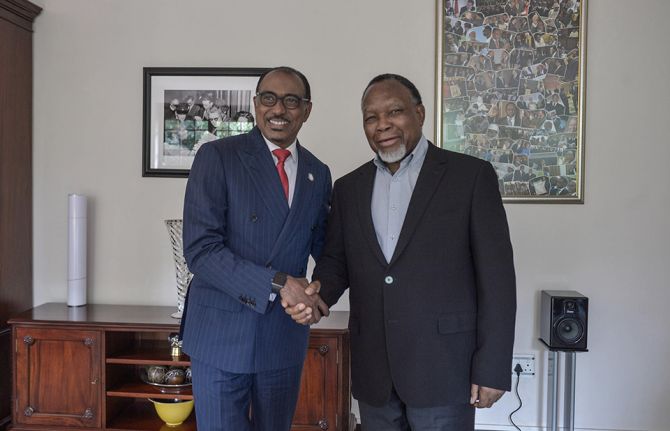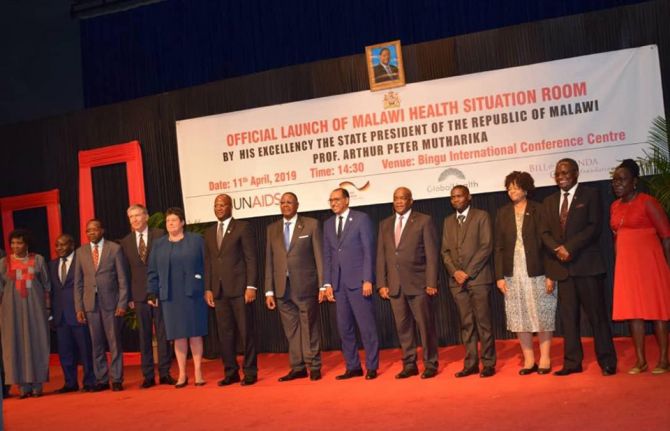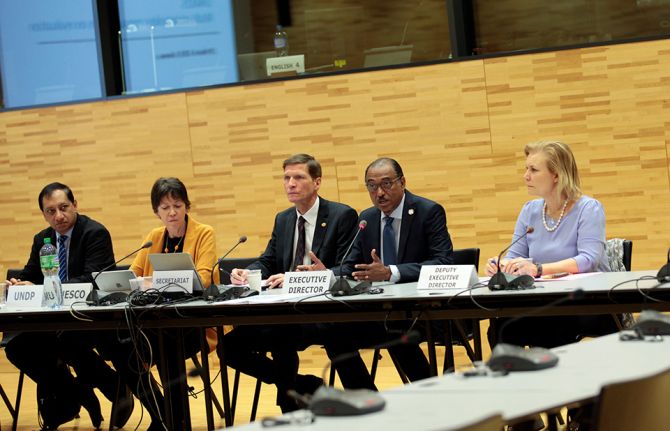
Feature Story
HIV prevention and protection for women and girls cannot wait
08 June 2011
08 June 2011 08 June 2011
Credit: Women Deliver
The International Peace Institute, in collaboration with the Permanent Mission of Norway to the United Nations, Women Deliver, and Family Care International, hosted a policy forum entitled Prevention and Protection Save Lives: Girls, Women, and HIV on the sidelines of the 2011 UN General Assembly High Level Meeting on AIDS on 8 June.
HIV is now recognized as the leading cause of death among women of reproductive age, the forum aimed to identify and strengthen the response to HIV and raise awareness about the interconnectedness of women’s health issue in relation to the broader development agenda.
In this light the high level panel brought together Michelle Bachelet, Executive Director, UN Women; Purnima Mane, Deputy Executive Director (Programs), UNFPA; Carmen Barroso, Regional Director, IPPF/WHR; Jan Beagle Deputy Executive Director, Management and External Relations, UNAIDS; and Ms Lindsay Menard-Freeman programme officer at Global Youth Coalition on HIV/AIDS to discuss lessons learned, current challenges, and the path forward.
“Young people are now the actors, mobilising for prevention, taking ownership of the AIDS response and shaping the attitudes of future leaders,” said UNAIDS International Goodwill Ambassadors Her Royal Highness the Crown Princess of Norway Mette-Marit who opened the forum. “We have to make sure that the next wave of leadership is equipped, engaged and sufficiently supported to maintain and develop the response.”
Also participating in the discussion was UNAIDS International Goodwill Ambassador Annie Lennox, a strong women’s rights activist: “We have the knowledge, we have the treatment,” said Ms Annie Lennox and urged world leaders gathering at the High Level Meeting on AIDS to take action on women and girls: “This is our moment: Don’t let us down.”
The Executive Director of UN Women called for leadership on this: “We know what has to be done and we know what works. And we can do better to stop this epidemic. With political will we can create the fiscal space to make women and girls a priority,” said Ms Bachelet.
The discussion, moderated by James Chau, Goodwill Ambassador, UNAIDS and a journalist with China CCTV, highlighted that young women in particular are vulnerable to HIV. As a result of a combination of biological and socio-cultural factors, nearly a quarter of all new global HIV infections are among young women aged 15-24.
We have the knowledge, we have the treatment. This is our moment: Don’t let us down
Annie Lennox, UNAIDS International Goodwill Ambassador
“Knowing your epidemic” in gender terms is critical. The human rights, including the sexual and reproductive rights of all women and girls – in particular women and girls living with HIV – must be protected and promoted in all HIV and global health programmes.”
However, progress has been made. More than 60 countries have shown their commitment to gender equality by implementing the UNAIDS Agenda for Women and Girls and HIV, engaging over 400 civil society organizations.
“It’s important to remember that young people are actors, and young people are asking for what they need,” said Ms Menard-Freeman. “Now that we are here [at the High Level Meeting on AIDS], we need the voices of young people to be heard.”
One of the critical examples raised as a model for a consolidated approach to women’s health was the United Nation’s Every Woman Every Child campaign. The campaign, launched during the United Nations Millennium Development Goals Summit, has so far seen a US$ 40 billion commitment by countries to improve the health of women and children. If implemented, it is estimated that the strategy could save up to 10 million lives of women and children by 2015.
The new UNAIDS Strategy 2011 - 2015: Getting to Zero has made advancing human rights and gender equality for the HIV response one of its three key strategic directions, and is committed to ensure that the rights of women and girls in the context of HIV.
UN General Assembly High Level Meeting on AIDS
Thirty years into the AIDS epidemic, and 10 years since the landmark UN General Assembly Special Session on HIV/AIDS, the world has come together to review progress and chart the future course of the global AIDS response at the 2011 UN General Assembly High Level Meeting on AIDS from 8–10 June 2011 in New York. Member States are expected to adopt a new Declaration that will reaffirm current commitments and commit to actions to guide and sustain the global AIDS response.
External links
Related
 Keeping up the momentum in the global AIDS response
Keeping up the momentum in the global AIDS response

24 April 2019
 Malawi launches its health situation room
Malawi launches its health situation room

12 April 2019
 Learning lessons on evaluation
Learning lessons on evaluation

02 April 2019
